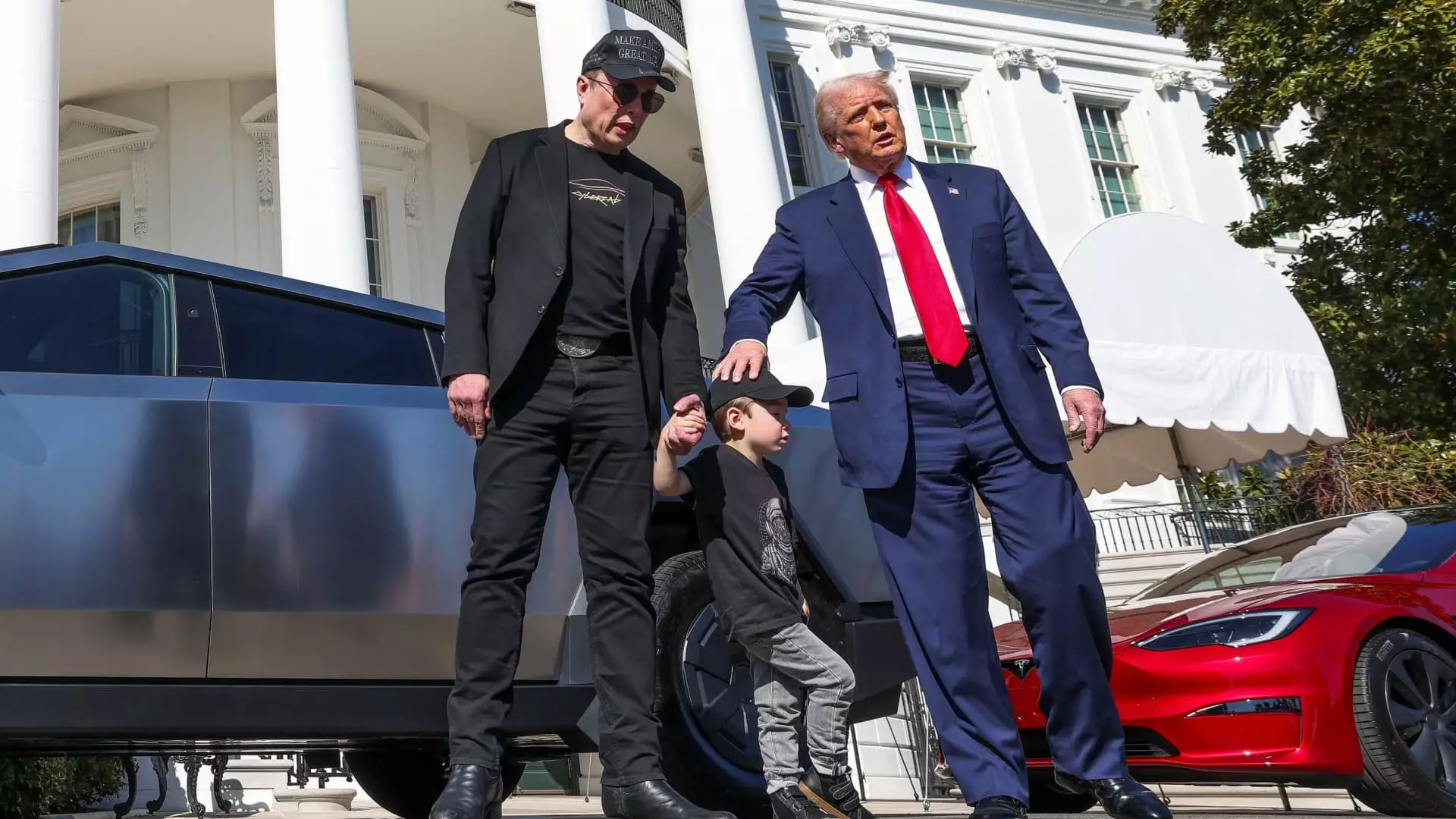In a climate fraught with economic instability prompted by frenetic political discourse, Elon Musk found himself walking a fine line between expressing personal opinion and navigating the demands of a volatile market. During an earnings call that revealed Tesla’s disappointing quarterly results—including a staggering 20% year-over-year drop in automotive revenue and a jaw-dropping 71% decline in net income—Musk addressed headwinds stirring within the industry. His statements concerning tariffs reflect a more grandiose struggle beyond mere numbers; they mirror the ongoing tussle between innovation and government intervention, a recurring theme in the narrative of American capitalism.
Musk candidly stated that while he personally disapproves of the burden that high or unpredictable tariffs impose on industries, he conceded that the ultimate decision rests solely with the President of the United States. This statement encapsulates the dual nature of Musk’s public persona: an innovator eager to advocate for the free market while tethered to a political landscape that inhibits growth through fiscal uncertainty. Tariffs don’t merely represent financial burdens; they evoke psychological impacts across industries that require stability for long-term investments and advancements.
Tesla’s Position in the Global Market
Unlike many U.S. automakers skirting the edges of profitability, Tesla’s strategy revolves around localized supply chains that ostensibly insulate the company from tariff ructions. Musk claimed that Tesla is among the least affected automakers regarding tariffs, which may seem encouraging. Yet, the reality is more complex. The intricate web of Tesla’s supply chains weaves through China, Canada, and Mexico, which makes the implications of tariffs not just a matter of domestic policy but an international chess game.
With the specter of alarmingly low stock prices haunting Tesla following the president’s tariff proposals, Musk’s reassurances become harder to digest. For investors, these proclamations ring hollow when juxtaposed with the staggering decline in profits. It raises an essential question: In a rapidly changing economic landscape, how much can reliance on localized supply chains shield Tesla from wider, global economic abnormalities? If core materials and essential components are sourced globally, are we really safeguarded from an erratic tariff regime?
The Mixed Signals of Leadership
Musk’s rhetoric about tariffs becomes even more perplexing when considering his contentious relationship with administration officials, including his blunt critique of Peter Navarro, President Trump’s chief trade adviser, whom Musk derided as “dumber than a sack of bricks.” This clash serves as a poignant illustration of Musk’s complex role. He embodies the duality of the modern entrepreneur: deeply intertwined with the political elite while simultaneously vocal in dissent against ill-conceived policies that hinder his business.
During the earnings call, Musk asserted, “If some country is doing something predatory with tariffs,” leaders should contrive measures to mitigate such injustices. However, this phrase could be interpreted as an implicit endorsement of interventionist policies that defy the libertarian ideal of free trade Musk professes to champion. The inconsistency in his statements reveals a struggle familiar to many who find themselves caught in the crossfire of doing right by company stakeholders while navigating the labyrinthine world of political affiliations.
Looking Ahead: The Lithium Quandary
Though Tesla has embarked on developing its own battery manufacturing capabilities in the U.S., Musk eloquently articulated the challenge represented by the tariffs on lithium iron phosphate battery cells sourced from China. As his vision for a self-sufficient energy sector materializes, Musk underscored a crucial point—local manufacturing presents a future path fraught with logistical challenges and inevitable delays. His desire to secure supply chains free from Chinese dependence, though noble, serves as a bittersweet reminder of the chasms and limitations inherent in transitioning to a more independent operational model.
Overall, Musk’s dualistic relationship with both politics and markets captures the tension between innovation and regulatory frameworks, as Tesla aims to soar amidst the clouds of financial uncertainty. In the throes of these turbulent economic tides, the power of clarity coupled with a consistent vision for fair trade and economic integrity has never been more critical.

Leave a Reply